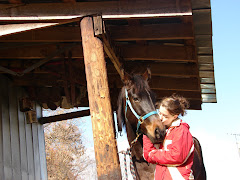There was a 19th century Persian philosopher who inspired the American system of teacher training. He introduced the compulsory schooling and encouraged the creation of lower class teachers. Its true that there wouldn't be schooling without teachers. So after reading Gatto's views I was curios why teachers are so under minded as a profession. Although there are some people who might not agree, teaching is not the most ideal and glamorous job. Even when I decided I wanted to be a teacher I had many people ask me "why?" as if I had just jumped into the worst occupation I could think of. Even though, like Gatto said, it is one of the closest watched occupations. with all the media and politics surrounding schools, you are constantly seeing things about teachers, curriculum's, or the school system as a whole. With all that coverage people obviously know the hard work and dedications school teachers put into their job, so why is not a valued occupation?
Another viewpoint that caught my attention was Spring's section on common schooling. Common Schooling is a school with the basis on all children will be educated. It was created around 1830-1840 with specific public policies. The father of common schooling was a man by the name of Horace Mann. I liked this way of schooling from the standpoint that all children get educated. This had to do wonders for the working class in the society. Just as in today's time knowledge is power. And with the opportunity for everyone to go to school, this made lower and middle class feel empowered that they can receive the same education. It reminds me of the today debates on inclusion. I feel this topic is a part of "all learners" as Springs mentions. One thing I did find interesting is that this type of schooling was originally based on common moral education form the bible. It also taught social ideology, which i think is a great thing to teach. I believe our school systems are way to based on memorization and definitions. We need to be promoting higher critical thinking in the classroom so our students can take real life situations and make sense of them. If the students had more guidance in morals and ethics I think that would benefit the student as well, especially in today's time were many families are tied up and to busy to slow down and teach the little lessons. But what this section did mention is that politics were kept out, which I find very fascinating since now and days it's totally opposite. In most of my classes politics is a huge debate and definitely touched upon in the classroom, where as religion is not acceptable to discuss and rarely even mentioned.
Subscribe to:
Post Comments (Atom)



4 comments:
I was really struck by Gatto's views of teaching as well. It was even more shocking to me that he had been a teacher for so many years. After reading his feelings and how he explained them I began to understand why he felt that way. Like you, I get the same response from people when I say that I am going into education. Some of these people are teachers themselves. I think that more than anything people have gotten too caught up in the negatives of teaching rather than the positive things that teaching can produce.
While reading the section on common schooling, I found that it was interesting how much people wanted to make it the teacher's responsibility to provide moral education to children rather than the parent's. I think that remains a problem today as well. In my opinion, the school should not be held solely responsible for a the morals of a child.
This is in regards to the part about the common schools. I agree with you in that we need to include morals in our curriculum and aim as teachers and also that we need to promote more critical thinking. But I do not agree as much with your thoughts on having less facts taught in the schools. I think all three of these areas are equally vital.
You are right by saying we need to fill in with our moral teachings where the students are lacking at home. Also, the ability to think critically is becoming more important by the day. This ability can be applied in real life situations when students are faced with peer pressure or in the classroom, where they must connect the dots within a problem. Lastly, I think the dates and facts are crucial to their base knowledge - these are the things that adults still remember from their elementary school days - in 1492, Colombus sailed the ocean blue.
KTY you actualy got my point, I didnt really know how to expalin it untill you made your comment! because the way we were taught is not how children are taught today I dont think. we know why and how columbus came over (and the date b/c of that nifty song). Thats what I think needs to be taught more is the how and why because that makes you critically think rather than just dates and names for a test. cramming like that doesnt get your brain thinkin... I cant remember any important names or dates from any wars I had in history but I do know why and hows. I wish schools would teach like this agian instead of just trying to do good on standerdized test so the state looks good!
Thank you for your post, Jen. I apologize for taking so long to post responses. I wonder if we can separate morality from politics? It seems that the two issues are ones that are linked together. I think it is particularly tough for teachers who are not politically motivated to deal with the inevitable political and moral issues that make the task of teaching kids so difficult. Were you surprised that education has been so political?
Post a Comment